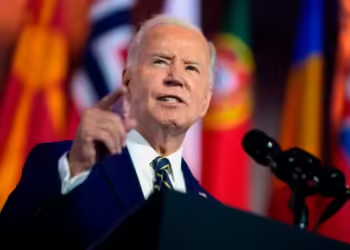Nicaragua’s Ortega courts isolation with one-sided vote
Nicaragua's left-wing president, Daniel Ortega, is currently the longest-serving leader in the Americas.
BBC News
By Blaire Toedte
On Sunday, he looks set to extend his rule for five more years in a one-sided election dismissed as an illegitimate “farce” by his main opponents and by most democratic governments.
The 75-year-old former Marxist guerrilla commander is seeking re-election for a fourth consecutive term.
He has governed the Central American nation for over half of the more than four decades since Nicaragua’s 1979 Revolution that toppled dictator Anastasio Somoza.
After quashing anti-government protests that defied his Sandinista National Liberation Front (FSLN) government in 2018, President Ortega outraged the US, its allies in Latin America and the EU by brazenly sidelining his main opposition election challengers.
They were detained and disqualified from standing for office or forced into exile. Dozens of other members of the opposition were also arrested.
This crackdown in the months leading up to Sunday’s vote means that the re-election of President Ortega and his wife, Vice-President Rosario Murillo, is viewed by critics and supporters alike as virtually a foregone conclusion.
A number of other, little-known presidential candidates will also be on the ballot but are unlikely to attract many votes.
The US and EU have signalled likely further diplomatic isolation and sanctions in the event of a another win by Daniel Ortega and Rosario Murillo.
The couple in turn regularly denounce “imperialist” US threats against Nicaragua.
Under what conditions are the elections being held?
Nicaragua’s army, which is viewed as loyal to President Ortega along with the police, has announced the deployment of 15,000 troops around the country to provide “security” for the vote.
Since the 2018 protests were put down by the security forces, major anti-government demonstrations have been rare and many opposition figures have fled into exile.
Some voters may heed opposition calls for a boycott of the elections. Opposition civil society organisations and student groups have called for an “electoral strike”.
The opposition’s main presidential candidates – Cristiana Chamorro, Arturo Cruz, Félix Maradiaga, Juan Sebastián Chamorro, Miguel Mora, Medardo Mairena and Noel Vidaurre – were swept out of contention by being variously detained, restricted, barred and forced into exile in mid-2021 under a phalanx of “anti-terrorist” and “defence of national sovereignty” laws.
A major opposition grouping, the Citizens for Liberty, had its legal status cancelled.
The candidates who have been allowed to stand are being dismissed by opposition commentators and media as “collaborationists” in an “electoral farce”.
According to a recent survey by Costa Rican pollster CID Gallup, at least 76% of Nicaraguans considered that the re-election of Mr Ortega would be “illegitimate” or of “little legitimacy”.
Nevertheless, the same poll had 55% of respondents saying they had “a lot of” or “some interest” in voting, whereas 44% had “little or no intention”.
How are the government and opposition presenting the elections?
The network of media controlled by Mr Ortega’s government and his family has maintained a barrage of upbeat coverage of the 7 November elections, calling them “democratic” and “transparent”.
The barred opposition contenders and detained opponents have been regularly portrayed by the government narrative as US-backed “terrorists” seeking to sow “hatred” and disorder.
On the opposition side, politicians and commentators, some of them in exile, have kept up a steady drumbeat of condemnation, criticism and rejection of the elections.
Pro-opposition media have been reporting that various sectors, including government workers and public school teachers, were being forced with threats to vote for the governing party.
There has also been criticism from members of the Catholic Church, which maintains influence in Nicaragua and has reprimanded the Ortega government in the past for anti-democratic abuses.
Pro-opposition daily La Prensa cited one parish priest, Uriel Vallejos, as saying in a homily that he would not vote and that “the people are going to turn their back on the dictatorship”.
What’s the view from abroad?
The US government, the Organization of American States and the EU have all been adamant in their view that the 7 November elections cannot be considered valid.
EU foreign policy chief Josep Borrell told journalists this week that he viewed the Nicaragua vote as “a complete fake”, from which there could be no “legitimate result”.
US Secretary of State Antony Blinken has accused Mr Ortega and Ms Murillo of “preparing a false election that is lacking credibility”.
EU foreign ministers have asked Mr Borrell to prepare additional sanctions against the Nicaraguan government and its officials.
Vice-President Murillo and the couple’s sons, as well as other top Sandinista officials, have already been targeted by US and EU sanctions.
Nevertheless, President Ortega and his FSLN party can still count on the support of like-minded anti-US governments in Cuba, Venezuela and Russia, among others.









